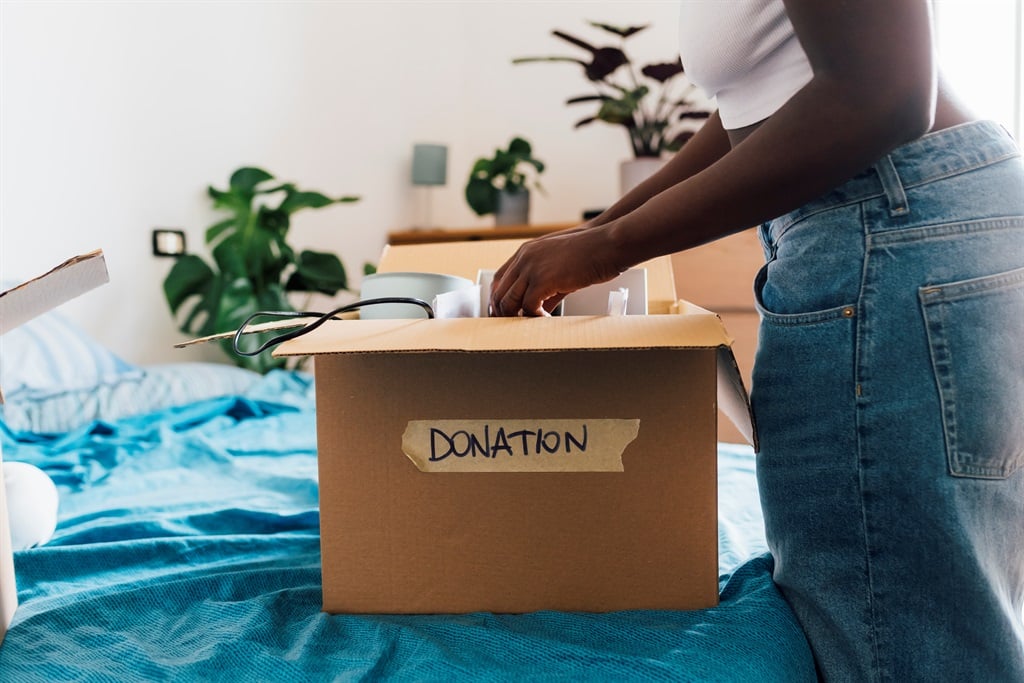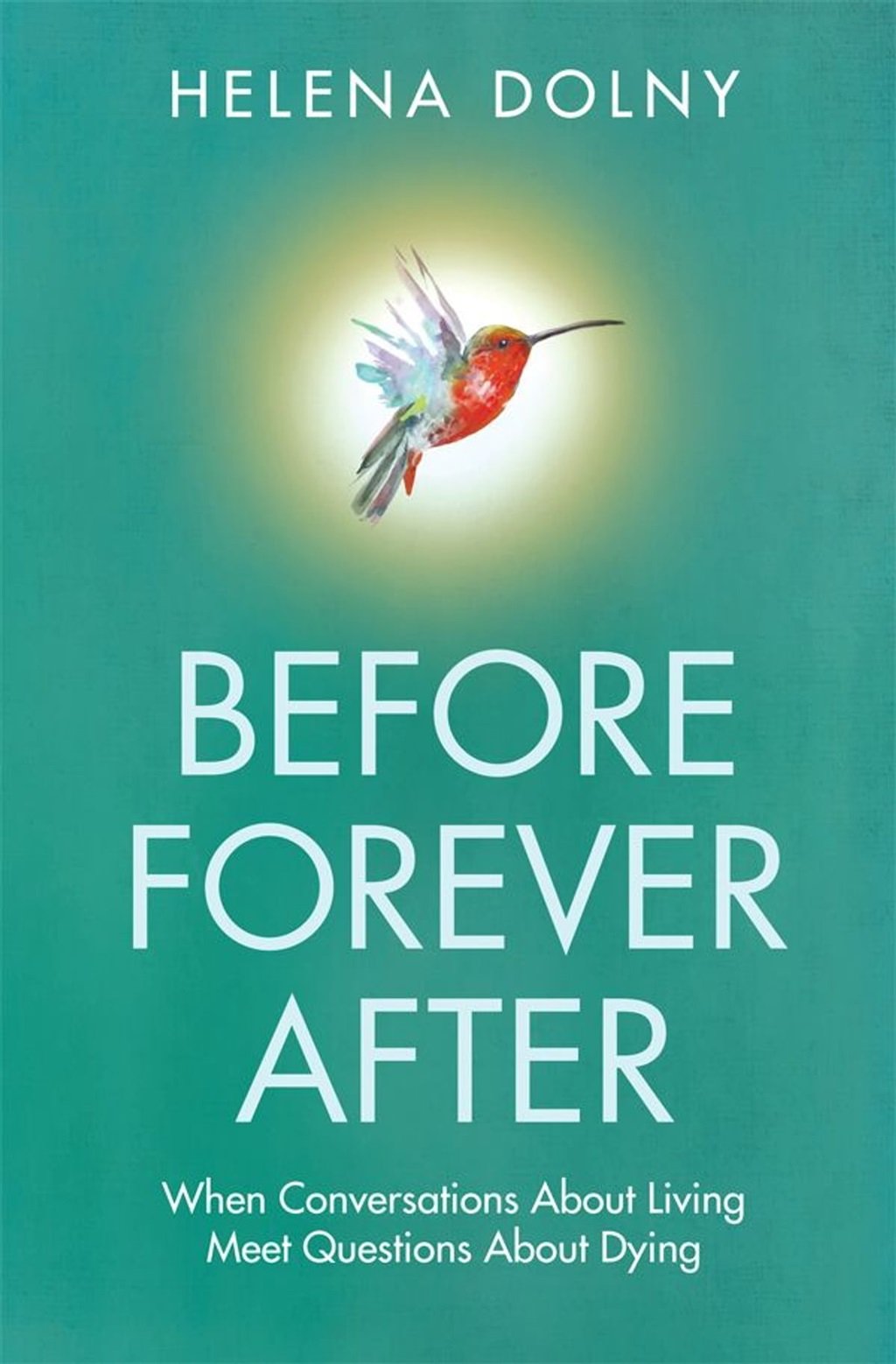
Live by Design is a weekly News24 column by Dr Helena Dolny and Mapi Mhlangu on mortality and the conversations around it.
Two weeks ago, at our first LoveLegacyDignity Death Cafe gathering of the year, the discussion question that attendees chose was: "For 2024, what will be their focus towards living authentically while simultaneously preparing for the inevitability of death?"
Many shared their personal goals. There was one recurring theme - that of decluttering or releasing items that no longer hold value. Some struggled with taking action on decluttering tasks. One attendee mentioned their intention to organise their study for the past nine years.
I'm very familiar with emotional attachment; people have sentimental items. It's been almost 20 years since my mother passed away, and my sister is still holding onto some of her old bedding and handbags that haven't been used in the past 21 years.
I only kept one thing from my mother - a China dinner set, which I frequently make use of. It is one of my most treasured possessions. "Embodied memory", that's the term given when the history of an item and its use creates psychological value that is not connected to monetary value.
Guests at Death Café cited such sentimental value as the reason for holding onto things. There is also the fear of needing an item in the future. For others, they are simply too busy to deal with decluttering.
Procrastination also plays a role in this behaviour, as individuals may feel overwhelmed by the task of sorting through their belongings and making decisions about what to keep and what to let go of.
Attendees shared heartfelt reasons for decluttering, acknowledging that holding on to these items can be mentally and emotionally draining, hindering our ability to grow and make room for new experiences. They are adamant that they do not want to leave this clutter as a task for family members to sort out in the event of their demise.
In a society that often values material possessions and consumerism, the art of needing fewer things can be a challenging but rewarding journey.
I thoroughly enjoy collecting beautiful items, from tableware to clothing, books and shoes. Finding gorgeous items at discounted prices is my superpower. It's like a sport to me. However, I have a strong distaste for clutter. Every four months (this is diarised), I go through my entire house, storage room, my garage and select unused items. I either give away some items as gifts or donate clothes that have been untouched for two years to charity shops. The sight of an empty shelf brings me joy as it holds the promise of being filled with something unique and special.
While letting go of old sentimental items can be particularly difficult, as they hold emotional significance and memories, for me, decluttering is therapeutic.
Hoarding, or the act of holding onto unnecessary clutter, can have a negative impact on our mental and emotional well-being. Psychologists have long studied the effects of clutter on our brains, with experts - like Dr Susan Krauss Whitbourne and Dr Randy Frost - highlighting the importance of decluttering for a healthier mindset.
As we declutter our physical spaces, we also declutter our minds, allowing for clarity and focus on our daily lives.
By practising the art of needing fewer things, we can cultivate a sense of freedom and lightness, prioritising what truly brings us joy and meaning. Letting go of the excess allows us to create a space that nurtures our well-being and supports our mental health.
It is putting into practice what we mean by "living by design to finish strong". We invest the time needed to declutter and, in doing so, we create the peace of mind that, when our inevitable death actually happens, our loved ones will be able to grieve unencumbered by any mammoth task of dealing with our clutter.
Some of our Death Café participants hooked up to be buddies to keep each other accountable during 2024 - their year of decluttering. Another decided to hire someone to help - indeed, there are people who do decluttering as a profession. The consequences of not decluttering can be dire for those we leave behind.
New Yorker cartoonist Roz Chast created an illustrated book - Can't we talk about something more pleasant? - describing her parents' elderliness and the stress of being the only child responsible for their support as they became increasingly frail. They had lived in their Brooklyn apartment for six decades. She sketches the 26 handbags, the drawer full of Tupperware lids, the pile of newspaper clippings, school reports, and and, and. Imagine a smallish two-bedroom apartment filled to the point of bursting.
What is clear is that decluttering is psychologically beneficial to us as we live, and hugely appreciated on our death by those who are left with the responsibility to wind up our affairs and dispose of belongings.
Decluttering is an act of kindness towards yourself and those you love. There is a phrase Roz Chast uses that I repeat to myself when I'm in doubt as to whether to keep something or not, "My treasure - your detritus." Think about it!
Want to read more articles in this series? Click here.
Disclaimer: News24 encourages freedom of speech and the expression of diverse views. The views of columnists published on News24 are therefore their own and do not necessarily represent the views of News24.




 Publications
Publications
 Partners
Partners















